Teamsters Canada Rail Conference (TCRC) union has appealed against the arbitration that ended the work stoppage at CN and CPKC
September 3
The Teamsters union has appealed the federal government’s move to arbitration that ended the rail work stoppage in Canada. In filings to the Federal Court of Appeal, the Teamters Canada Rail Conference (TCRC) challenged the binding arbitration issued to a labour board less than a day after the lockout of 9,300 workers by Canadian National Railway (CN) and Canadian Pacific Kansas City (CPKC).
Meanwhile, fears of strikes on North America’s East coast port are growing, as the United States Maritime Alliance (USMX) has filed a notive to mediation agencies along with the Internaitonal Longshoremen’s Association (ILA).
August 26
The Canada Industrial Relations Board (CIRB) has imposed binding arbitration between the Teamsters Canada Rail Conference (TCRC) union and rail providers Canadian National and Canadian Pacific Kansas City (CPKC).
The CIRB has also ordered that no further labour stoppage, including a lockout or strike, can occur during the arbitration process.
TCRC said it is “extremely disappointed” by the recent CIRB decision and will be challenging the ruling in court.
Teamster members protested outside the Liberal Party of Canada Laurier Club fundraiser in Halifax this week, which was attended by Canada’s prime minister Justin Trudeau.
The rail companies restarted railway operations in Canada on August 26, CIRB order to resume operations and Teamsters Canada Rail Conference (TCRC) employees to resume their duties. The lockout initiated on August 22 has been lifted.
Canadian National said that while it is disappointed an agreement could not be reached at the bargaining table, it is satisfied that the CIRB order “effectively ends the unpredictability that has been negatively impacting supply chains for months”.
August 23
Teamsters Canada Rail Conference (TCRC) has issued a new strike notice to Canadian National Rail (CN), in a twist after taking down picket lines at CN.
The union had said workers would begin returning to work at CN from Friday morning (August 23) after CN called off the lockout, but has since issued a strike notice today for August 26, stating: “We do not believe that any of the matters we have been discussing over the last several days are insurmountable and we remain available for discussion in order to resolve this matter without a further work stoppage.”
The Teamsters union said that work stoppage at Canadian Pacific Kansas City (CPKC) remains ongoing, pending an order from the Canada Industrial Relations Board (CIRB), adding that there is “no clear indication that the CIRB will actually order an end to the labour dispute at CPKC”.
More updates to follow
August 22
Canadian National Railway (CN) and Canadian Pacific City Railway (CPKC) have begun their lockout of nearly 10,000 workers as of 00:01 EST today, having failed to reach an agreement with Teamsters Canada Rail Conference (TCRC) union.
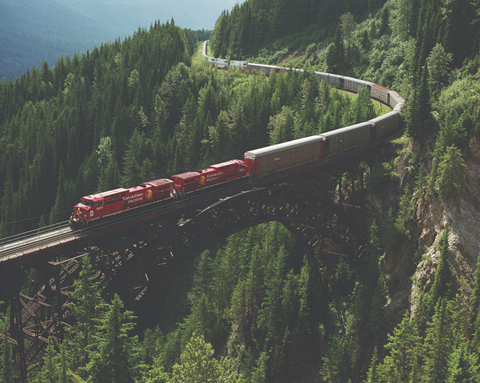
The Teamsters union claims that it has put forward multiple offers, “none of which were seriously considered by either company,” while CN claims that the union did not respond to its offers, and CPKC says the union “continues to make unrealistic demands that would fundamentally impair the railway’s ability to serve customers”. The union claims that the main obstacles to reaching an agreement remain the companies’ demands, not union proposals.
Despite the lockout, all parties remain at the bargaining table, with the rail companies insisting that the best way forward is through binding arbitration.
In a statement today, Paul Boucher, president, TCRC union said: “Throughout this process, CN and CPKC have shown themselves willing to compromise rail safety and tear families apart to earn an extra buck. The railroads don’t care about farmers, small businesses, supply chains, or their own employees. Their sole focus is boosting their bottom line, even if it means jeopardising the entire economy.”
While the lockout officially started today, both rail companies have been halting shipments and putting embargoes on certain goods since August 19.
As a consequence, the number of vessel arrivals at container terminals in the port of Vancouver dropped from 73 to 61 for the second week of August, according to Everstream Analytics, making it the second lowest number of arrivals throughout 2024. The analytics firm said the number of vessel arrivals into the port has dropped 22$ since the middle of July.
Diversions from Canada to nearby ports
Around 66% of cargo arriving at the port of Vancouver is moved by rail to final destinations in the country or in the US Midwest, according to Everstream Analytics, so carriers have started to divert cargo from Canada’s West Coast ports in anticipation of today’s lockout.
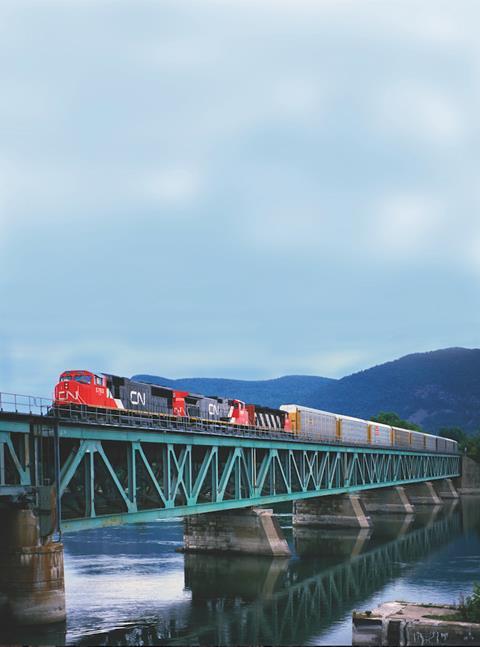
Everstream expects that more container ships will start to divert to alternative ports to the US including LA Long Beach, Oakland and Seattle in the coming days, as yard congestion at Canada’s ports and rail dwell times increase significantly.
During the 2023 Vancouver port strike, the number of arriving vessels fell sharply, with an average of 74 ships arriving weekly in the two weeks before the strike, and just 38 arriving during the week of the strike, according to Everstream Analytics.
Impact of Canadian rail strikes on freight rates
The extent of the impact from the Canadian rail strikes depends largely on how long the strikes and lockout last, but Christian Roeloffs, cofounder and CEO of container trading online marketplace Container xChange said there may be an uptick in costs instantly.
”We may see an uptick in freight rates as market participants brace for significant disruptions,” Roeloffs said. ”This is a common reaction to potential disruptions, as uncertainty drives up costs. In the mid-term, we could face increased volatility in freight rates, with potential spikes driven by supply chain bottlenecks and congestion. Shippers and cargo owners should prepare for higher costs and possible delays as the industry adjusts to these challenges.”
Read more on the impact of the strikes on the North American automotive supply chain below.
Risk of simultaneous US port strikes
However, problems could be compounded if potential U.S. East Coast and Gulf Coast longshoremen strikes go ahead. The International Longshoremen’s Association (ILA) union has warned that its 85,000 members will strike on October 1 if an agreement is not met ahead of that date, with the parties due to meet at the beginning of September to discuss final demands.
Container xChange’s Roeloffs said: “The possibility of simultaneous strikes at US ports and Canadian railways present a perfect storm for North American trade.”
If the US port strikes happen, he said the container logistics sector could face reduced capacity, higher freight rates, and challenges in meeting delivery timelines, affecting everything from daily operations to long-term trade agreements and leading to higher costs for automotive OEMs and logistics companies.
Further updates to follow
August 19
The Teamsters Canada Rail Conference (TCRC) union served a 72-hour strike notice to CPKC late last night (August 18), while both CPKC and CN served a 72-hour notice to the Teamsters that it will be locking out TCRC members from August 22 if a tentative agreement is not reached by then.
Strike negotiations have been ongoing since labour agreements between CN, CPKC and TCRC expired at the end of last year, but no meaningful progress has occurred. In fact, the railways have been halting shipments and putting an embargo on dangerous goods in preparation for the potential strikes.
What is the Canadian rail strike about?
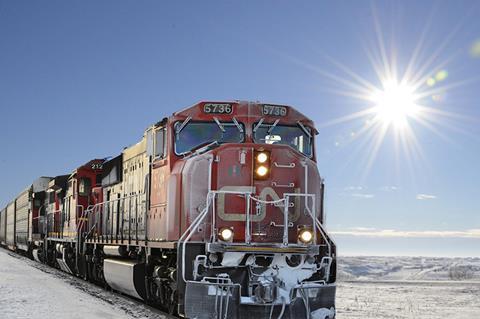
The TCRC said that the reason for the strike is because CN and CPKC “are focused on stripping existing rights instead of building a relationship and treating the membership with the respect it deserves”. The union said the companies have refused to properly implement duty and rest period rules (DRPR).
The union added: “The membership experiences the worsening of work fatigue and unpredictability daily, yet the carriers refuse to accept the guidance of Transport Canada regarding the reset break application.”
TCRC claimed the two rail companies “actively colluded” to undermine the membership’s rights. It said that it offered to stagger the cooling off periods for both railways to separate the possibility of both carriers being in a work stoppage simultaneously, but that the offer was rejected by CN and CPKC.
CN claims it offered the union several new agreements that improved safety, wages and work life balance with predictable days off that were refused, as well as an offer to voluntarily submit to binding arbitration that was also refused. Binding arbitration would mean bringing in a mutually agreed independent arbitrator to determine the terms of a settlement.
Meanwhile, CKPC claims it is focused on a status quo-style contract renewal covering three years, with competitive wage increases, while maintaining the “status quo” work rules which comply with new regulatory requirements for rest.
When will strikes and lockouts begin?
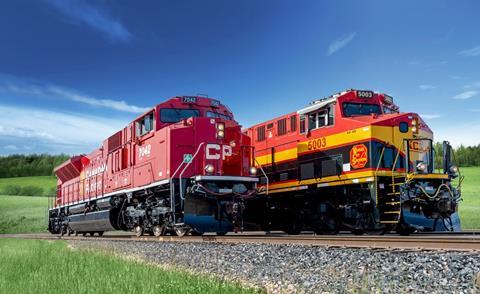
The TCRC will begin strike action from August 22 if agreements are not met before then.
CN’s embargo on shipping will begin on August 22 at 00:01 EST unless an agreement is reached before then, to prevent dangerous or sensitive goods being stranded on the network during a strike.
CPKC’s lockout will also begin on August 22 at 00:01 EST if no agreement is reached by then. It has also been implementing shipping embargoes for dangerous goods since August 12.
By tomorrow (August 20), CPKC said embargoes for all shipments originating in Canada will be in effect, as well as all shipments originating in the US destined to Canada, and all carload traffic destined for Canadian interchange.
CPKC said in a statement that it is acting to “protect Canada’s supply chains and all stakeholders from the more widespread disruption that would be created should this dispute drag out further, resulting in a potential work stoppage occurring during the fall peak shipping period”. It added that Canada’s international reputation and supply chains across North America will be impacted.
What are the impacts on North American automotive supply chain?
The impacts of the stoppages at both rail companies will not only affect the automotive supply chain in Canada but the North American supply chain network as a whole.

Already, shipping firm Maersk has decided to halt further acceptance of any Canada-destined shipments which require movement via rail and where gross cargo weights exceed maximum heavy truck weights, effective from today (August 19).
“If the strike does take place and the embargo on shipping extends to parts, sub-assemblies and finished vehicles, it is going to have a big effect on the automotive industry,” Nick Little, director of Railway Education, Center for Railway Research and Education at Michigan State University told Automotive Logistics.
He said the strikes need to be looked at in the context of other uncertainties in the automotive supply chain. Those include ongoing impacts on shipping from the Middle East, the recent explosion on a cargo ship at Ningbo-Zhoushan port in China that put the third largest volume container port in the world out of service, and ongoing global disruptions because of extreme weather conditions.
“You need good reactive resilience in the railway and automotive industry, but the automotive industry has adopted the just-in-time model very extensively, meaning there is no spare inventory to speak of at different stages of the supply chain, which is a problem for FVL when things start to go awry,” he said.
“If I was a purchasing logistics guy in one of the automotive OEMs, I would be looking at alternative transportation options,” Little said. “The first thing that springs to mind is trucks, however there is a shortage of truck drivers here, and it’s not possible to just conjure up 3,000 tractors and trailers, they just don’t exist. It’s very hard to replace that quickly.”
But since negotiations have been ongoing over the past year, he said some OEMs will have likely already made alternative transport plans by switching a proportion of their freight from rail to road.
“That has probably taken up what little spare capacity there was,” Little told Automotive Logistics. “Even if you found the trucks, that will cause more congestion and it’s not the most environmentally friendly way of moving freight. All the OEMs are competing for what is a very scarce resource, and when that happens, the cost goes up. Somewhere along the line, depending on the severity and length of the strike, people will have to ask what the ceiling is they are prepared to pay.”

Val Kucherenko, Little’s soon-to-be successor at Michigan State University when Little retires at the end of the year, told Automotive Logistics that the effects of a strike would span across Mexico and the US too. Kucherenko was also CKPC’s pricing and marketing manager for international automotive until August 1 this year.
“The automotive landscape in North America is made up of these three interconnected economies, and each one of these countries hosts different plants producing different models of vehicles,” he said. “Especially around Ontario and the Greater Toronto Area there is a heavy production cluster for major OEMs, including GM, Ford, Toyota and Honda, that produce in Canada and sell in the US and Mexico. So, there will be an impact across the wider North American region.”
Further updates to follow


























![Global[1]](https://d3n5uof8vony13.cloudfront.net/Pictures/web/a/d/s/global1_726550.svgz)




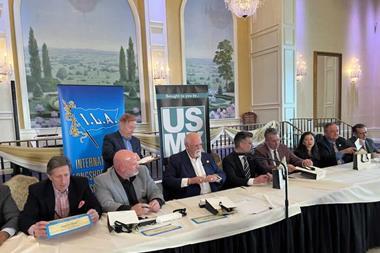
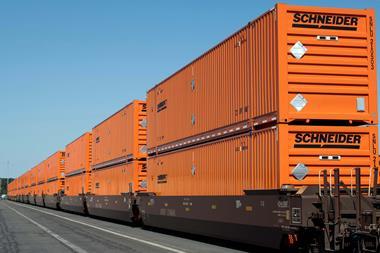
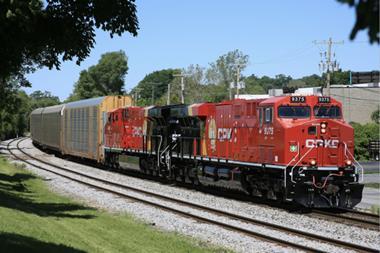
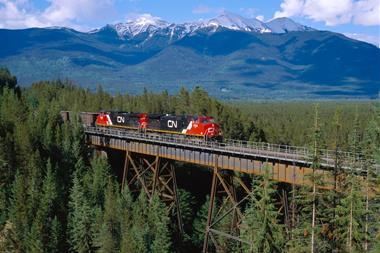
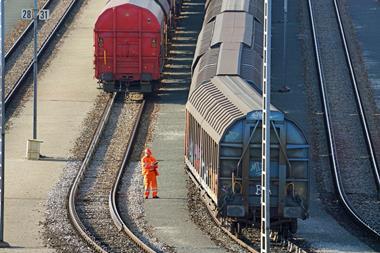
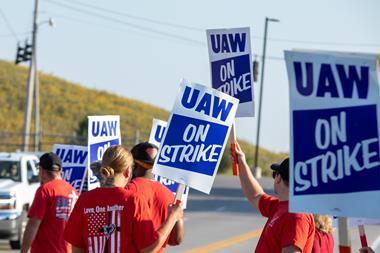



No comments yet